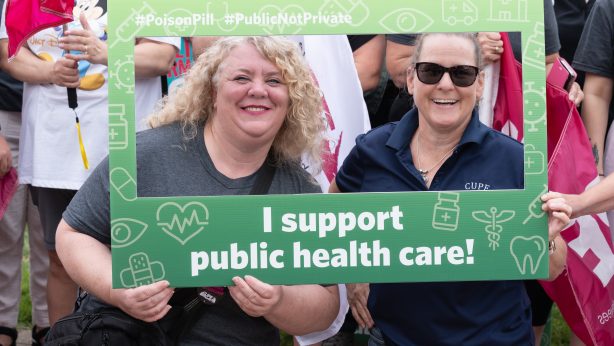Considering Québec’s version of pharmacare
Twenty-five years ago, in June of 1996, the Parti Québécois government set up the first pharmacare programme in North America.
The PQ government promised a universally accessible low cost program based on the income of the individual. It covered the 1.2 million working people who had no coverage for medication. Today the program covers 1.8 million people. The number on Line 447 of the Quebec income tax form defines what taxpayers with no workplace coverage have to pay.
Then Health Minister Jean Rochon, (who died in 2021), told La Presse that in 1970 when medicare was introduced in Quebec, medication wasn’t as central to health care as it has become. Rochon was convinced that the costs of the new pharmacare programme would be recouped by the reduced costs of outpatient medicine, since fewer people would be in hospital.
Small insurance companies were opposed as were the drug companies.
A compromise was struck. Those who have workplace insurance coverage-roughly 60% of the population- would keep it. Those who have no work place coverage are covered by the public program, paid for by a contribution via taxes, and a fee when medication was dispensed. The program would be administered by the private sector. Those deemed vulnerable are automatically covered: welfare recipients, the chronically ill and the elderly on low incomes.
“Under the Quebec plan deductibles and co-pays can total nearly $1200 annually. Thousands of patients go without their medicines because they can’t afford them. Overall Quebec has a highly fragmented system that results in the highest per capita costs among all provinces,” says Keith Newman, a member of the board of the Canadian Health Coalition.
According to Newman, the Quebec model should not be implemented in Canada. “It would perpetuate high costs to patients and employers and exclude hundreds of thousands of patients who would be unable to afford the medicines they need. It would also prevent proper bargaining for drug prices, ensuring Canada continues to have the second or third highest drug costs per capita in the OECD.”
The solution is clearly explained in the 2019 Hoskins Report.
When the report came out Dr. Eric Hoskins, the former Health Minister of Ontario told the CBC “Let’s complete the unfinished business of universal health care. That can be our promise and our legacy to each other and to all future generations.”
Hoskins recommended that Canada and Québec follow the examples of Sweden, Australia and France, among others.
Once fully implemented, the Hoskins report predicts the amount spent on prescription drugs in Canada would drop by roughly $5 billion a year. In order to get that point the report recommends the creation of a new national arm’s-length agency to manage prescription medications by negotiating prices, and creating a formulary, or list, of approved, covered drugs.
Over 500 groups in Quebec are pushing for a fully public system.


